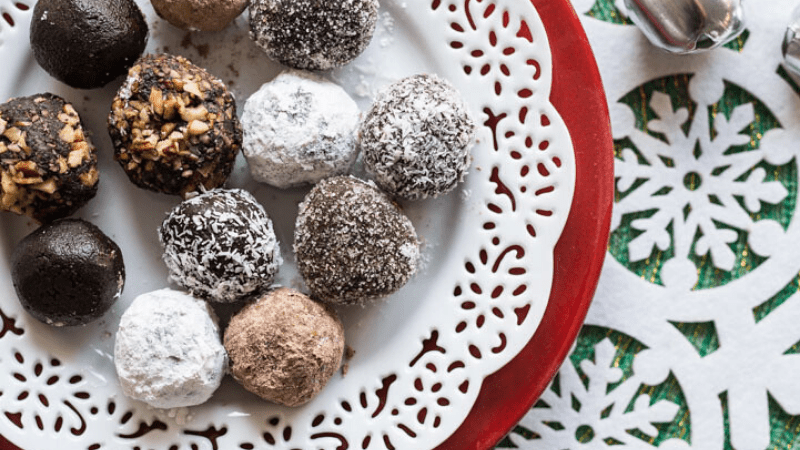9 days to Christmas! 🎅As part of our holiday countdown, we would like to share a little bit each day about various Christmas foods and decorations that may be harmful to your pets. Let’s start with one of the most delicious (and well-known) substances… chocolate!
❄️Allow 2 minutes to read ❄️
🍫Most pet-owners are aware that chocolate is not good for cats and dogs. So let’s dive into this topic a little deeper. What is it about chocolate that is toxic to our pets? This delicious dessert contains chemicals called methylxanthines. One example of a methylxanthine is caffeine. These chemicals are very safe (and sometimes even nutritious) for humans, but when consumed by household pets they can cause a whole host of side effects.
The higher the cocoa content, the more toxic chocolate is to a dog or cat; therefore, the darker and more bitter the chocolate, the more dangerous it is if your pets get their paws on it. Baker’s chocolate will cause a more severe reaction than white chocolate because of the higher cocoa and methlxanthine content. Signs that your pet ingested chocolate include hyperactivity, vomiting and diarrhea, increased thirst, increased heart rate, high blood pressure (hypertension), abnormal heart beats, seizures and increased body temperature (hyperthermia). If left untreated, chocolate consumption could cause death in a pet — luckily, death is rare in pets who receive timely treatment. Dogs are much more at risk than cats to consume toxic levels of chocolate.
Now that you know about methylxanthines in chocolate, don’t forget that these aren’t the only reason why chocolate is dangerous to cats and dogs. Here are a few others to remember:
If you think your pet has consumed chocolate, call the Pet Poison Helpline immediately:
855-764-7661
If possible, have the type of chocolate and cocoa content, and the approximate amount your pet consumed, ready to share with the Helpline.
Tune in tomorrow to learn about how to protect your pets from the beautiful, fragrant Christmas tree that is gracing your living room! 🎄
❄️Allow 2 minutes to read ❄️
🍫Most pet-owners are aware that chocolate is not good for cats and dogs. So let’s dive into this topic a little deeper. What is it about chocolate that is toxic to our pets? This delicious dessert contains chemicals called methylxanthines. One example of a methylxanthine is caffeine. These chemicals are very safe (and sometimes even nutritious) for humans, but when consumed by household pets they can cause a whole host of side effects.
The higher the cocoa content, the more toxic chocolate is to a dog or cat; therefore, the darker and more bitter the chocolate, the more dangerous it is if your pets get their paws on it. Baker’s chocolate will cause a more severe reaction than white chocolate because of the higher cocoa and methlxanthine content. Signs that your pet ingested chocolate include hyperactivity, vomiting and diarrhea, increased thirst, increased heart rate, high blood pressure (hypertension), abnormal heart beats, seizures and increased body temperature (hyperthermia). If left untreated, chocolate consumption could cause death in a pet — luckily, death is rare in pets who receive timely treatment. Dogs are much more at risk than cats to consume toxic levels of chocolate.
Now that you know about methylxanthines in chocolate, don’t forget that these aren’t the only reason why chocolate is dangerous to cats and dogs. Here are a few others to remember:
- The sugar in chocolate can cause GI upset in your dog or cat.
- Some chocolates contain xylitol, an artificial sweetener that can cause a pet’s blood sugar to drop to dangerously low levels and could even put a pet into liver failure.
- Many chocolate products also contain other substances that are poisonous to pets, including coffee/espresso beans, raisins, walnuts, pistachios, pecans and macadamia nuts.
- The foil wrappers and plastic packaging that chocolate is wrapped in can cause obstructions in the stomach or intestines.
If you think your pet has consumed chocolate, call the Pet Poison Helpline immediately:
855-764-7661
If possible, have the type of chocolate and cocoa content, and the approximate amount your pet consumed, ready to share with the Helpline.
Tune in tomorrow to learn about how to protect your pets from the beautiful, fragrant Christmas tree that is gracing your living room! 🎄






